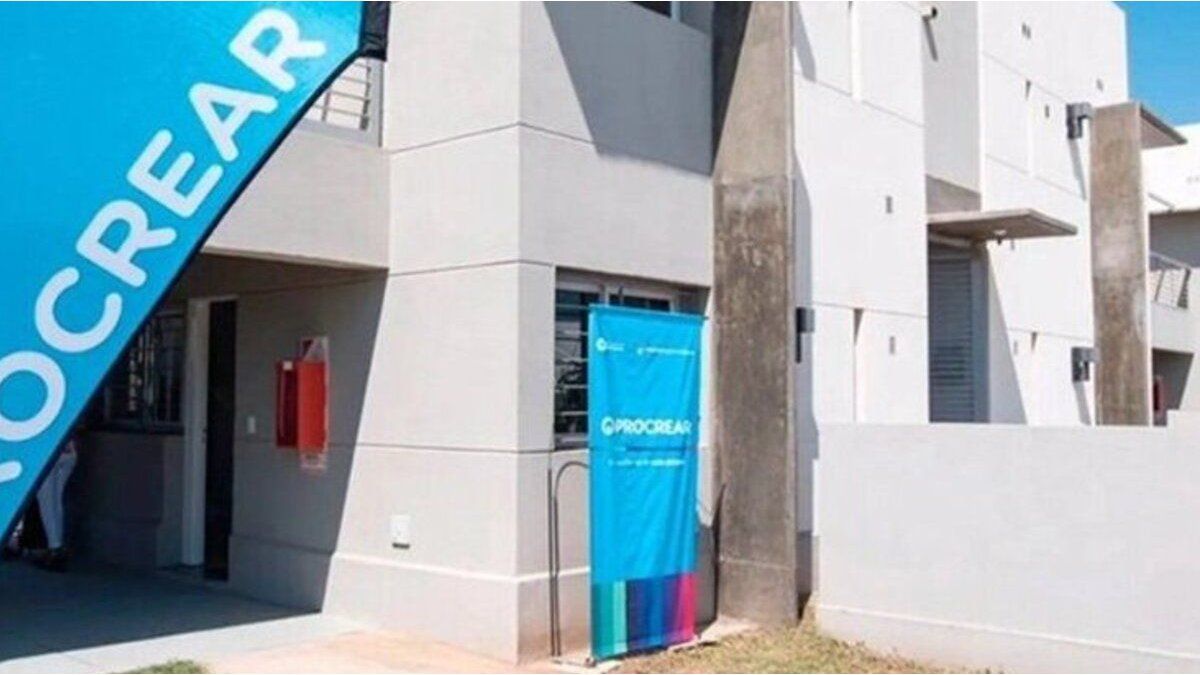The national government announced the dissolution of the Procrear program, created in 2012 under the management of Cristina Kirchner, which offered credit lines subsidized by the national State for access to housing.
He Decree 1018/2024published in the Official Gazette and signed by President Javier Milei, Chief of Staff Guillermo Francos, and Economy Minister Luis Caputo, formalized the announcement. In its recitals, the decree highlights that “The difficulty of large sectors of society in accessing housing cannot be ignoreda situation derived, among other causes, from the high inflation of recent decades that has made access to credit difficult. Likewise, the decree maintains that “Financing for housing construction is a fundamental function of commercial banks, both private and public, and, therefore, state intervention in this area is not justified.”
It is important to remember that in a previous decree, 1017/2024, published in the Official Gazette, the implementation of “divisible mortgages on real estate intended for real estate projects, allowing their future division and adhesion to the horizontal property regime, real estate complexes or the subdivision of common domain parcels.” This measure is aimed at real estate projects in development, with the aim of facilitating access to housing, encouraging private investment and contributing to economic reactivation.
Returning to the decree on the dissolution of Procrear, it is stated that the program “has become a significant burden on public finances” due to problems in its supervision and control, in addition to generating “unnecessary expenses for the public treasury.” In this sense, it is noted that the program “has not been transparent, agile or efficient in serving the common good.”
What the decree says about the dissolution of the Procrear program and what will happen to the current credits
The measure establishes in article 1: “The Public Trust Fund called the Argentine Bicentennial Credit Program for Single Family Housing (Pro.Cre.Ar) is dissolved created by Decree No. 902 of June 12, 2012 and its amendment.”
Article 2 provides that the “Ministry of Economy will carry out all the necessary acts for the liquidation of the Public Trust Fund, called the Argentine Bicentennial Credit Program for Single Family Housing (Pro.Cre.Ar), s“according to the provisions of this decree and the Trust Agreement of July 18, 2012.”
Article 3 instructs the “Ministry of Economy to enter into a contract with Banco Hipotecario SA for the continuity of the credit management under the same remuneration conditions established in the trust contract signed on July 18, 2012″. In this way it is clarified what will happen to the current credits.
Likewise, article 4 authorizes the Ministry of Economy to dispose and manage “movable and immovable property, including its improvements, within the framework of what is established in article 1, as well as the regularization of ownership of the properties.” Meanwhile, the signing of a contract between the Ministry of Economy and the Mortgage Bank is established “under the same remuneration conditions as those established in the Trust Contract signed on July 18, 2012 for said efforts.”
procreate 2.jpg
Procrear was a housing access program that was born in 2012
Ministry of Territorial Development and Habitat
The Ministry of Economy will evaluate together with SIGEN all trust funds that contain state assets or funds
In the context of the new structure of the State and, particularly, of the Public Administration, it is mentioned in the recitals that article 1 of Decree No. 215/24 “designated the Ministry of Economy as trustor representing the National State in all trust funds made up totally or partially with assets and/or funds of the National State, exercising in that function the direction and administration of said trust funds.”
Based on this provision, the Ministry of Economy, with the support of the General Audit Office of the Nation (SIGEN), “would carry out a comprehensive audit of trust funds that totally or partially contain state assets and/or funds.”as indicated in the decree.
In compliance with these provisions, the SIGEN “prepared a report in which it made several observations on the operation of the public trust fund Pro.Cre.Arpointing out, among other points, the delay in the delivery of homes and premises, which has generated additional costs in maintenance, security and expenses, which could have been avoided if the urban projects had been delivered on time; breaches of the agreement by the National Technological University (UTN); multiple complaints about inadequate living conditions in the units delivered; and the lack of updating of procedure manuals.”
The document also indicates that “the management of said public trust fund has not been transparent, agile, efficient, effective and of quality in caring for the common good.”which justifies its dissolution and liquidation in accordance with the delegation provided for in section a) of article 2 of Law No. 27,742.”
The decree adds that “the positive impact of the State’s non-intervention in this activity cannot be ignored, which is essentially private, both for citizens in general and for the sector in particular”, and concludes that, “given the structural reforms, it is not justified for the State to continue intervening in the financing for the construction of housing.”
Finally, it is established that “based on the reforms implemented by the Central Bank of the Argentine Republic (BCRA) since December 2023, with the elimination of remunerated liabilities and progress in reducing inflation, an increase in the granting of mortgage loans by banks, thus facilitating access to housing.”
Source: Ambito
David William is a talented author who has made a name for himself in the world of writing. He is a professional author who writes on a wide range of topics, from general interest to opinion news. David is currently working as a writer at 24 hours worlds where he brings his unique perspective and in-depth research to his articles, making them both informative and engaging.




